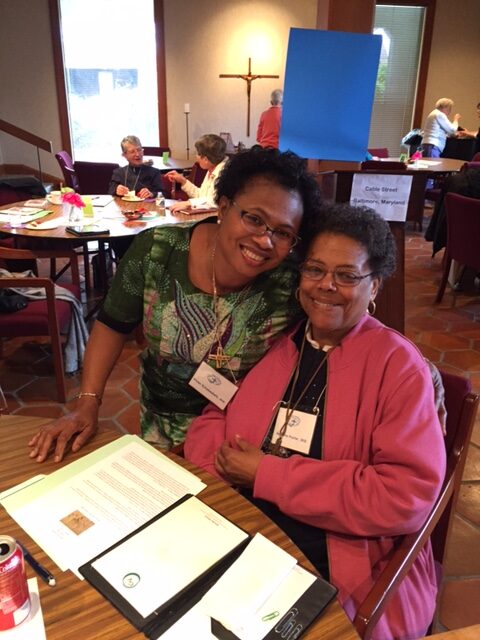By Sister Gwynette Proctor, SNDdeN
This reflection initially appeared in the Summer 2023 issue of our magazine, 'Sowing Goodness.' The full issue is available here.
For the past forty-two years, I have felt a calling to follow in the footsteps of St. Julie Billiart and stand with and for the poor and oppressed in the most abandoned places. As a member of the Sisters of Notre Dame de Namur, I have worked as an educator and administrator serving diverse populations in various locations.

I began work in Baltimore city as a public school teacher before becoming the Principal of Academy of Notre Dame, a Catholic high school for young women in Washington,D.C. Later, I became the Executive Director of Notre Dame Education Center in Lawrence, Massachusetts, where we established programs such as ESOL (English for Speakers of Other Languages), occupational training for Certified Nursing Assistants, and citizenship classes. Through these programs, we were able to break the generational cycle of poverty in families by creating a pathway to a more secure life.
My work in New England brought me closer to people who were new to the country and struggling to maneuver through the community safely. The inability to speak English was a source of insecurity, isolation, and fear, which relegated them to live their lives in the confines of a four or five-block area. At the Notre Dame Education Center, we refocused our mission to provide programs that would broaden engagement in the community. English classes helped expand their access, breaking the isolation. The Certified Nursing Assistant program provided skilled jobs paying higher wages to support the family, and citizenship classes helped pave the way toward navigating the community without fear.
Later, my ministry experiences placed me back on the streets of Baltimore city, where I engaged with people who lived in underserved areas and were often invisible to society.
As the Director of Our Daily Bread, a soup kitchen that provided more than just soup, I encountered individuals from all walks of life, including the homeless, the employed, the underemployed, and the poor. Our meals, often the only one of the day, consisted of bread, casseroles, a dessert, and a drink for our 700 guests. Instead of feeling the ridicule and disgust of strangers in their lives, they were greeted by the volunteers and staff with kindness, care, and the human dignity and respect that each one deserved but rarely experienced.
“I encountered men whose troubled lives had almost used them up, and I felt privileged to sit among them, listen to their stories, and focus them on a future filled with promise and possibilities.”
Sister Gwynette Proctor, SNDdeN
My work then shifted to the Christopher Place Employment Academy,aresidentialemployment program for formerly homeless men that provided addiction recovery services and future employment opportunities. Here, I encountered men whose troubled lives had almost used them up, and I felt privileged to sit among them, listen to their stories, and focus them on a future filled with promise and possibilities.
Reflecting on my ministry experiences, I realized that the most important element of my outreach was the consistent presence I provided to different segments in society. This spirituality of presence knows no boundaries and has served me well in the past and will continue to guide me forward in life. As I walked the streets in New England and now Baltimore, I continue to feel St.Julie’s presence as my companion guiding me along the way.
